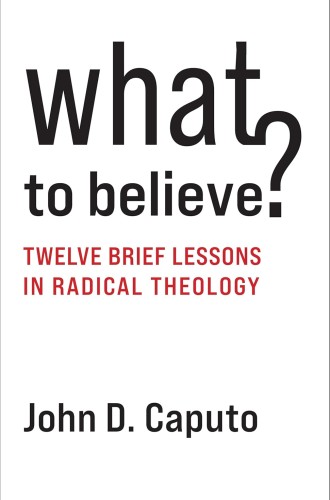Jack Caputo’s insistent, nonexistent God
According to the radical theologian, “God’s essence is in our hands.”

What to Believe?
Twelve Brief Lessons in Radical Theology
When the universe ends in trillions of years, will God still be here?
Jack Caputo says no. A post-theistic Christian, Caputo rejects the idea of an eternal Supreme Being towering over the cosmos. Instead there’s “God,” in scare quotes—the name of a symbol and an “imaginative personification” of what we love unconditionally. Caputo’s God can’t live without us.
I don’t know if you’re feeling turned on or nauseated. In What to Believe?, Caputo unspools his radical theology, like it or not. He does so in (relatively) lay terms, weaving in his personal journey as a working-class Italian American kid in Philadelphia who started down the road of Catholic priesthood but became a philosopher and heretical theologian. Now the former altar boy who made a short-lived vow of chastity goes around saying things like, “God does not exist; God insists.”





